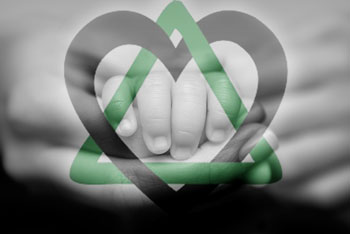Page 1 Page 2

I was 42 and recently divorced when I decided I wanted to adopt a child out of the foster care system. I could have found an anonymous sperm donor or a gay friend to help me become a mother, but parenting interested me more than pregnancy. My passage into motherhood began with an interview with a social worker, a home inspection, and an eight-week foster parent training. When I invited my family to attend my graduation from the training program, my younger brothers boarded a flight from San Francisco to Los Angeles with their toddler children, and my mother drove four hours from Fresno to attend. Meanwhile, my father called with an excuse about being too tired. He had been recently out of town for a conference with his second wife.
With that one phone call, I was reduced to feeling like a teenager again, yearning for my father’s love and approval. I had married, divorced, started my own business, and felt independent and resourceful enough to take aim at becoming a single mother, but his rejection was devastating. “You don’t understand,” I said, my voice cracking as tears flooded my eyes. “I’m doing this on my own.”
“I’ll be there,” he promised.
I resigned myself to repeating a painful yet familiar pattern that had defined our interaction throughout most of my life. He had always been compelled to first withhold before extending his emotional or financial support, but in the end we both knew he had always come through for me. He paid full tuition at the swanky boarding school and Ivy League university I attended; he walked me down the aisle at my wedding, wearing a pinstripe suit; and he fully supported my decision to stay in or leave an unhappy marriage. This time, however, he was a no-show for my graduation, and I was crushed and stunned.
* * *
In the intervening months, while I waited for a phone call about a match with a child who needed a mother, Mark, a man who had been more than an acquaintance but less than a friend, entered my life and decided to stay. I explained that I was on the cusp of motherhood, and before long he, too, became certified to foster parent. Together we waited for a phone call about matching with a child.
Eventually Mark and I matched with Abigail, a 1-year-old girl who satisfied a primal mothering desire in me the instant our eyes met. Nothing I had ever done had felt as natural or right as loving her. Motherhood also introduced me to a new set of identity issues to explore with my parents. When I asked my father how he felt about becoming a parent for the first time upon my arrival, he said he could not remember.
* * *
My entire family, including my father, immediately embraced Abigail as the newest branch on our family tree. When she reunified with her birth father, after just seven months with us, my family grieved; we had lost one of our own. The day after her departure, I sobbed on the phone to my father about packing up her clothes, her toys, and her books and sending her off with her birth father, a young man who I felt confident would love and care well for his little girl. But I also feared that I might never again see the child who had forever changed me and my priorities.
“What you need is a bigger grill,” said my father. “How about I buy you a barbecue next time I’m in town?”
I knew my father wanted to comfort me, but right then I needed reassurance that Mark and I would remain in contact with our darling Abigail and that another child, one who needed us even more, was headed our way. Just a few weeks later, my father came to Los Angeles and insisted we go to Home Depot to buy a massive gas grill with the equivalent of eight burners. We did not talk about Abigail or my stages of grief, about which my father knew all too well as a physician, or my elation when Abigail’s birth father invited Mark and me to call anytime we wanted to see her. Instead, my father showed me his recipes for his special marinade and “the dip” he mopped on the meat as it cooked to keep it tender and moist. Normally, my father’s barbecued spare ribs would have lifted my spirits, but no amount of grilled meat would feed my need to love another child now that I had tasted motherhood.
* * *
Page 1 Page 2
Pages: 1 2

